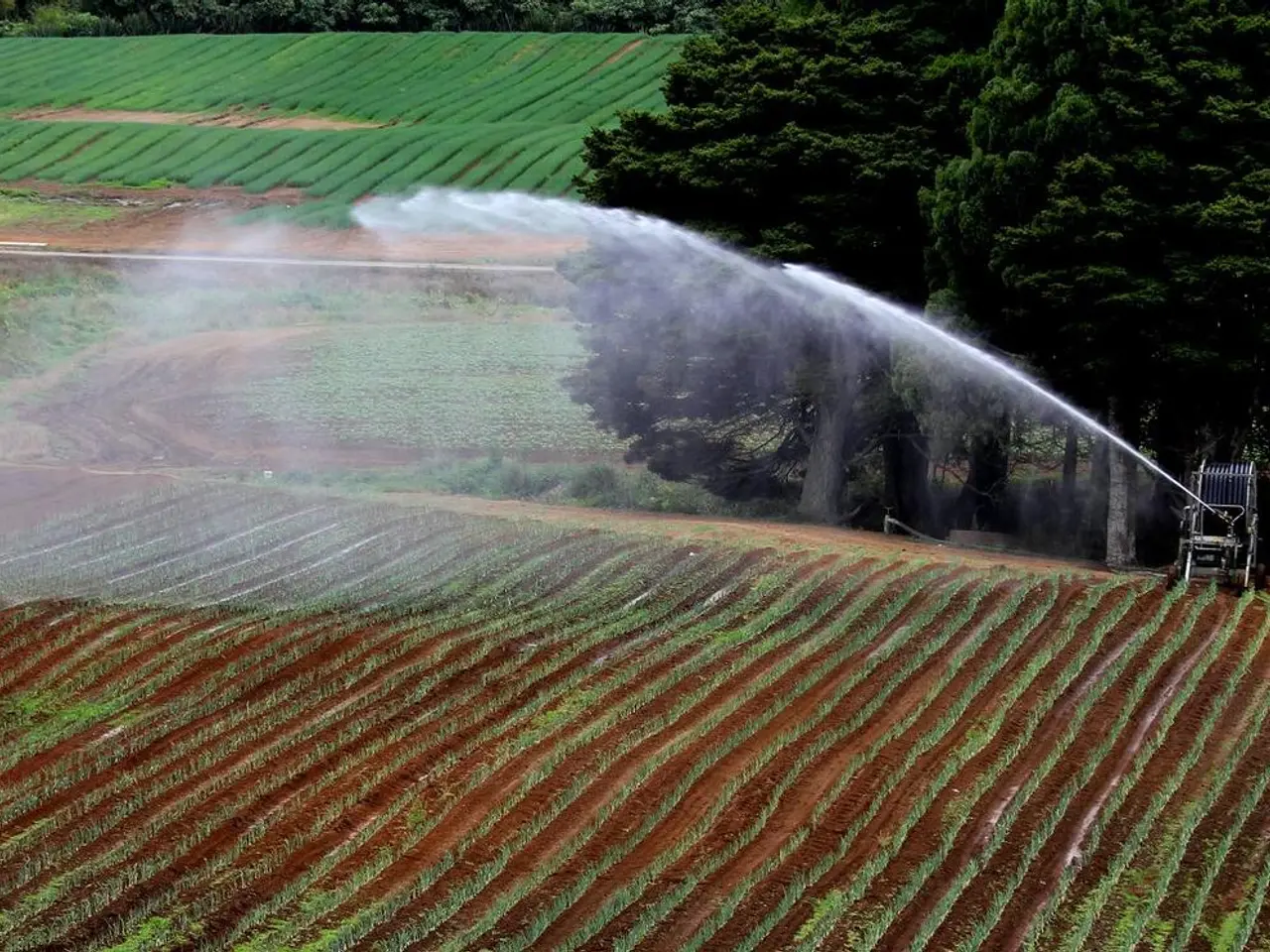Avoiding irrigation system failures: strategies for success
In the realm of garden maintenance, an often overlooked yet crucial aspect is the regular upkeep of your irrigation system. By following these key steps, you can prevent breakdowns, extend your system's lifespan, and conserve water, all while ensuring a healthy landscape.
Firstly, it's essential to inspect and clean your sprinkler heads regularly. This simple task removes dirt, sediment, and mineral deposits that can cause clogs and uneven watering. Check for any damage, misalignment, or broken parts, and adjust or replace them as needed to maintain proper coverage.
Next, check valves and piping for leaks or wear. Waterproof thread seal tape on threaded connections can prevent leaks, and regular valve inspection helps detect minor issues early, reducing costly repairs.
Inspect electrical connections in controllers and solenoids for secure wiring and corrosion. Replace any corroded wiring to maintain a consistent power supply for reliable operation.
Monitor and adjust water pressure using pressure regulators or booster pumps to keep system pressure within the optimal range (generally 15 to 30 PSI for spray heads). Excessive pressure can cause misting and equipment wear, while low pressure reduces coverage.
Conduct a full system audit periodically by running a full irrigation cycle while walking the property to spot overspray, pooling water, dry spots, or runoff. This helps identify system imbalances and water waste.
Adjust watering schedules seasonally to match plant needs, soil moisture, and weather conditions. Water early mornings to minimise evaporation.
Maintaining a regular maintenance schedule is crucial. This includes weekly, monthly, and annual checks, and promptly repairing any issues found to minimise breakdowns and stress on the system. Maintain records like pump specifications and commissioning reports for benchmarking.
Group plants with similar water needs into separate irrigation zones (hydrozoning) to optimise water use efficiency and prevent over- or under-watering.
Avoiding stress and damage to components is a benefit of regular irrigation system maintenance. Damage to pipes and fittings can be caused by frost or animals, requiring a complete inspection at the start of the season.
Choosing quality materials for an irrigation system increases its lifespan and resistance to environmental stresses. Installing rain sensors can optimise water consumption and prevent unnecessary irrigation.
Regular maintenance helps prevent irrigation system breakdowns. Zones of the garden that remain dry or unusually flooded are signs of a problem. Checking pressure and looking for leaks is a part of regular irrigation system maintenance.
Regular maintenance is recommended every change of season. Cleaning filters and nozzles is recommended for regular irrigation system maintenance. Situations requiring a more thorough check or intervention may arise.
Performing periodic system tests once a month helps prevent breakdowns. A well-maintained irrigation system does not require miracles, just the right maintenance. The latest innovations in irrigation systems are available for discovery.
- To prolong the lifespan of your irrigation system and ensure efficient water usage, consider regular cleaning of home-improvement products such as filters and nozzles, which can remove dirt and improve water distribution in your home-and-garden landscape.
- Incorporating quality materials like drip lines and soaker hoses into your home-improvement projects will enhance your irrigation system's resistance to environmental stresses and contribute to a sustainable water-conscious lifestyle, ultimately benefiting both your home-and-garden and the planet.




